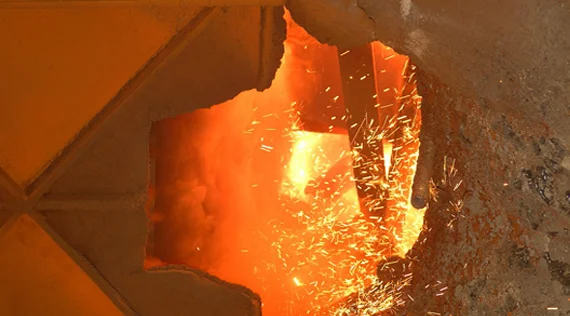
Pressure is building on the EU to launch emergency action to support the strategically important European smelting industry as another plant announced savage production cuts.
Germany’s Speira is the latest aluminium producer to slash production because of soaring energy costs as the crisis deepens for one of the continent’s key industrial sectors.
The cuts add to calls for help to save a sector that is facing an “existential threat” from skyrocketing power prices and comes ahead of a meeting of EU energy ministers on Friday that aims to soften the pain for households and business through emergency interventions.
In a letter to EU leaders, Eurometaux, the nonferrous metals trade body, said the industry’s problems, which have led to “unprecedented” cuts to smelter production in the past year, will deepen unless the EU intervenes. “We are deeply concerned that the winter ahead could deliver a decisive blow to many of our operations,” the industry body wrote in a letter signed by 40 chief executives.
The cost of energy has become far higher in Europe than Asia and the US after Russia slashed gas supplies to the continent, which is threatening to wipe out corners of the region’s industry.
The move to halve smelter production at the Rheinwerk plant near Düsseldorf to 70,000 tonnes a year from next month comes a day after Aluminium Dunkerque, Europe’s largest primary smelter for the metal, announced it would reduce output by just over a fifth.
Speira chief executive Einar Glomnes said that energy prices have become too high to maintain production and he sees little price relief in the near-term. “We are facing similar challenges as many other European aluminium smelters,” he said. “This development requires us to curtail 50 per cent of our smelter production until further notice to sustain value for Speira.” The latest wave of cutbacks follows indefinite shutdowns of Norsk Hydro’s aluminium smelter in Slovakia and a zinc smelter in the Netherlands run by Nyrstar, which is controlled by commodity trading giant Trafigura.
Europe only accounts for 6 per cent of global aluminium production but the metal is of strategic importance because of its use in aerospace, defence and the auto sector, as well as in buildings and to produce drink cans. “Europe should realise that if we don’t produce aluminium, then we will be dependent on aluminium that is imported.
It will be the same story as semiconductor chips for cars,” said Milan Vesely, managing director of the Slovalco smelter in Slovakia that has halted production. “Europe should take action and decide whether aluminium is a strategic material.” Known as “solid electricity”, aluminium is one of the most vulnerable sectors to the surge in energy prices that shot up after Russia throttled gas supplies to Europe.
Before the crisis, electricity was about 40 per cent of an aluminium smelters’ costs with one tonne taking about 15 megawatt hours of electricity to produce, enough to power the average UK home for about five years.
Producers have said it is nearly impossible to sign long-term power supply deals when their current contracts expire with electricity prices up more than 10-fold of their average over the previous decade. Gas, which is used to generate power, heavily influences electricity prices. European aluminium production is running at its lowest level in decades.
Last year Europe produced 4.3mn tonnes of aluminium, but that is set to plummet by a fifth to 3.4mn tonnes this year, according to Wood Mackenzie, a consultancy. Speira, which is primarily an aluminium rolling and recycling group, said that the curtailed production will be replaced with external supplies, underlying the industry’s fear that more carbon-intensive imports will fill the void left by the European cutbacks.



| Copper Scrap View All | |
| Alternator | 0.40 (0) |
| #1 Copper Bare Bright | 4.17 (-0.03) |
| Aluminum Scrap View All | |
| 356 Aluminum Wheels (Clean) | 0.81 (0) |
| 6061 Extrusions | 0.71 (0) |
| Steel Scrap View All | |
| #1 Bundle | 360.00 (0) |
| #1 Busheling | 380.00 (0) |
| Electronics Scrap View All | |